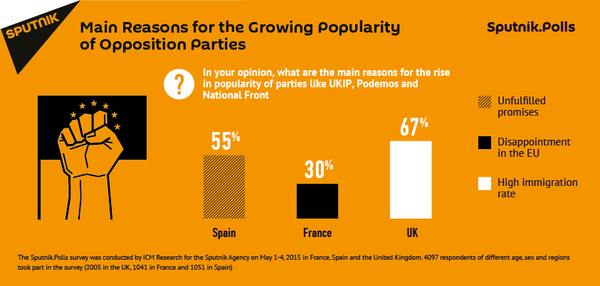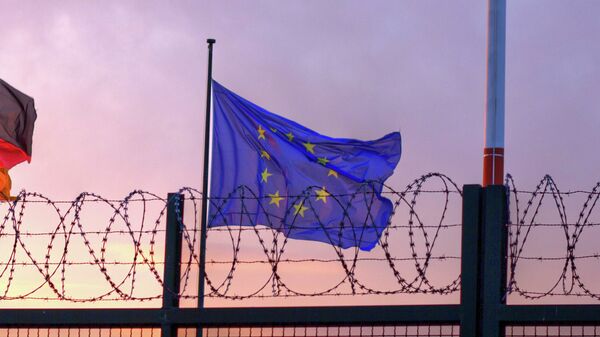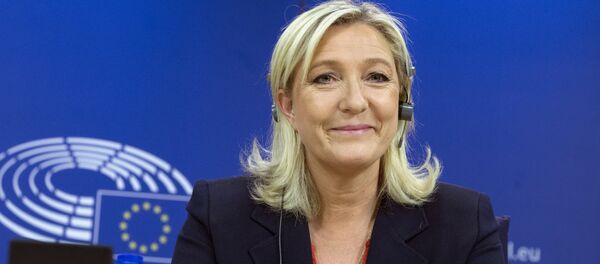"The EU has a conceptual problem and faces unsolvable tasks… Countries leaving the EU one-by-one is something we can expect. Greece is the first test," Seselj said.
According to the politician, crucial financial difficulties are among the main reasons why member states might decide to exit the European Union and no "European solidarity" will prevent them from doing so.
"The EU nearly emptied the wallets of its citizens and voters will increasingly look for someone who will stuff their wallets again. The EU cannot do it anymore, and solidarity within the EU is a story for the naive," Seselj said.
"Social justice is in general used as a marketing trick that creates an illusion of freedom, satisfaction, high and guaranteed life standard," Seselj said.
The European Union has witnessed a rise in popularity of Eurosceptic parties and movements. Earlier this week, a new anti-European Union bloc, "Europe of Nations and Freedoms," led by France's National Front was established in the European Parliament.
"‘Euroscepticism’…that phenomenon is maintained, nurtured and controlled by the EU rulers… It cannot jeopardize anything, but can perhaps frighten," Seselj said, adding that the anti-EU movement has embarrassed itself "with the perception that it is a natural part of the EU system."
"Simply put, they are looking for political forces that could break the ‘European melting pot,’" Seselj said.
According to Seselj, social problems could bring about a situation where a revolutionary Eurosceptic party could come to power in a EU state.
"Yet it will still not be the determining blow that could defeat the Americanization of Europe. For the EU to dissolve it would need for states to start leaving the EU one-by-one by the will of the people. It is too early to talk about the voluntarily or arranged dissolution of the EU," he said.
According to Seselj, one of the most significant problems Eurosceptic movements are facing today is their lack of recognized leadership.
Also Vojislav Seselj noted that the so-called "EU ideology" is merely a product of forced Americanization that was imposed on Europeans after World War II, substituting traditional ideological differences between European parties.
"The Americanization of Western Europe nullified the classical ideological distinction between political parties and political ideas…. Thus, the traditional ideological divisions were replaced by the imposed 'EU ideology' as an obligatory standard under which Americanization is concealed," Vojislav Seselj said.
"The American melting pot is in Europe imposed as the ‘European melting pot,’" Seselj added.
In January, more than 1000 people took part in an anti-Americanization rally in the German city of Erfurt.
An ICM Research poll conducted for Sputnik and published on Tuesday, revealed that most Europeans believe that mass migration to the EU, the failure of governments to fulfill their promises and a general disillusionment with the European Union have been the main reasons behind the rise of anti-EU sentiment.










